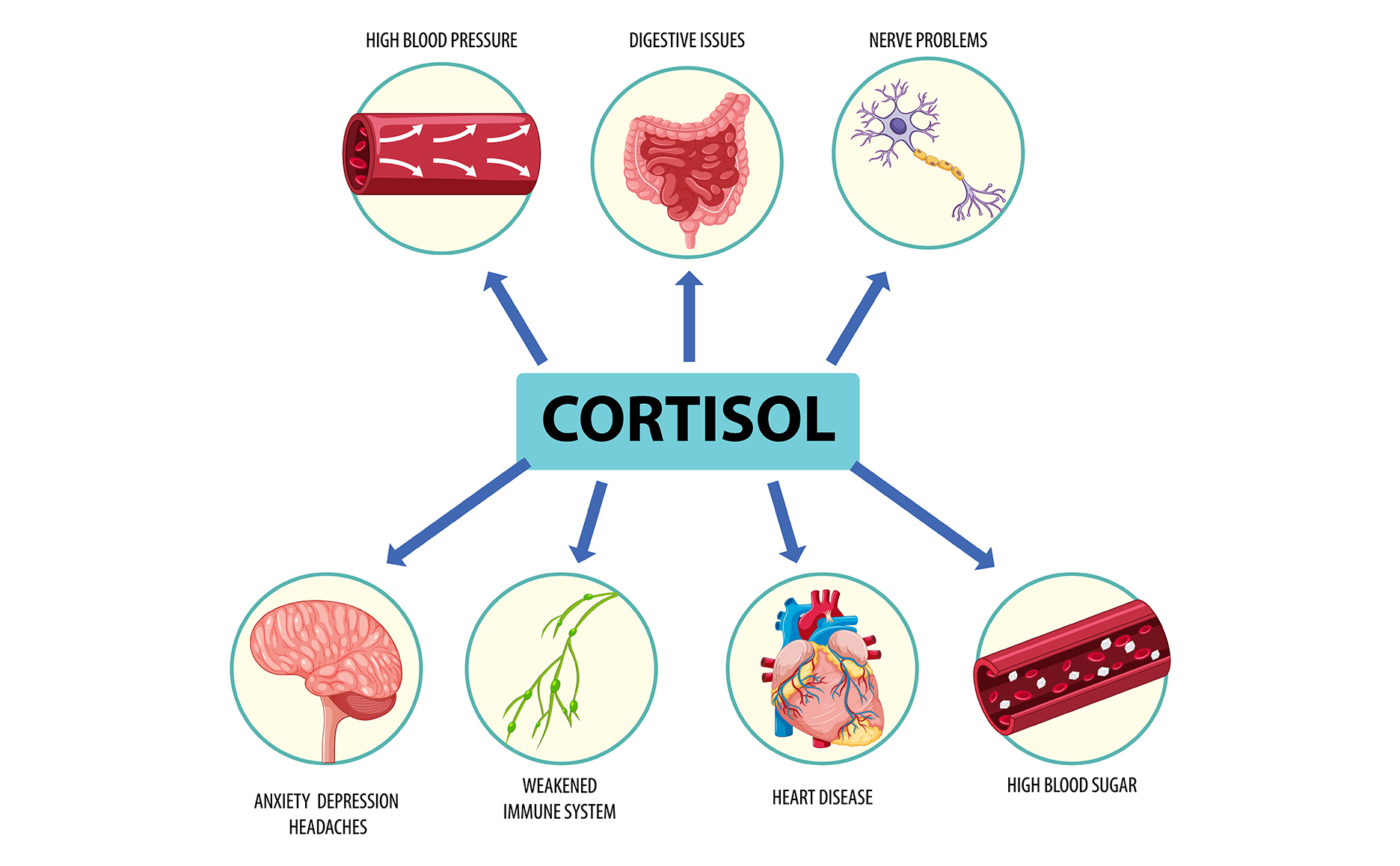In Hypertrophy training the emphasis often revolves around the gym—pushing weights, mastering form, and chasing personal bests. But beyond the bench press and bicep curls, an essential factor often overlooked is the role of sleep. Let’s delve into how sleep affects muscle growth, particularly in the context of hypertrophy training, and explores the intricate relationship between sleep, hormone production, and the potential consequences of poor sleep patterns.
The Science of Hypertrophy
Hypertrophy, in its simplest form, refers to the increase in muscle size. Achieving hypertrophy requires a combination of resistance training, proper nutrition, and recovery. While the emphasis on weight training and diet is well known, the recovery process—of which sleep plays a critical role—is often undervalued.
Muscle hypertrophy occurs when muscle fibres are exposed to mechanical tension and experience microtears during resistance training. These fibres then repair and grow back larger and stronger through a process called muscle protein synthesis (MPS). This recovery phase is most efficient when the body is well-rested, which is where sleep becomes vital. Without adequate sleep, the muscle repair process is compromised, potentially impeding muscle growth and overall performance.
The Importance of Sleep in Muscle Recovery
Sleep is not just a period of inactivity; it is an essential time for the body to repair itself. During sleep, especially during deep (slow-wave) sleep, the body undergoes critical processes for muscle recovery, energy restoration, and overall health. A full sleep cycle consists of different stages, with non-rapid eye movement (NREM) sleep being particularly important for physical recovery and growth.
Studies have shown that sleep deprivation can drastically reduce muscle recovery, performance, and even training motivation. According to a study published in Sports Medicine, sleep deprivation has been linked to reduced muscle protein synthesis and increased muscle breakdown, leading to impaired muscle growth and a potential loss in muscle mass (Dattilo et al., 2011).
In the context of hypertrophy training, where the goal is to maximise muscle size, these findings suggest that optimal muscle recovery requires not just a well-planned workout routine and diet but also sufficient sleep. While nutrition fuels the body and provides the building blocks for muscle, sleep allows the body to utilise those resources to their full potential.
Hormones and Sleep: A Critical Connection
Hormonal regulation is another key area where sleep exerts a significant influence, particularly when it comes to muscle building. Several hormones, such as growth hormone, testosterone, and cortisol, play critical roles in muscle hypertrophy, and their production is tightly linked to the quality and quantity of sleep.
Growth Hormone
Growth hormone (GH) is one of the primary hormones involved in muscle repair and growth. It stimulates tissue regeneration, increases protein synthesis, and enhances fat metabolism. The majority of growth hormone secretion occurs during deep sleep, making sleep an indispensable part of the muscle-building process. A study published in Endocrine Reviews found that up to 75% of daily GH release happens during sleep, especially during NREM sleep (Van Cauter et al., 2000).
Inadequate sleep reduces the amount of GH produced, thereby impairing the body’s ability to recover and build muscle after hypertrophy-focused training sessions. Over time, this could lead to a plateau in muscle growth, or worse, muscle loss.
Testosterone
Testosterone is another crucial hormone for muscle development, known for its anabolic effects, which promote muscle growth. Like GH, testosterone levels peak during sleep, particularly in the early morning. Sleep deprivation has been shown to significantly lower testosterone levels. A study conducted by Leproult and Van Cauter (2011) demonstrated that young men who experienced just one week of sleep restriction to five hours per night had testosterone levels akin to someone 10-15 years older. These lowered testosterone levels translate into reduced muscle growth potential, slower recovery, and decreased training performance.
Cortisol
Cortisol, the body’s primary stress hormone, plays an essential role in regulating various functions, including metabolism and immune response. However, chronically elevated cortisol levels, often caused by poor sleep or stress, can have a detrimental effect on muscle growth. Elevated cortisol levels are catabolic, meaning they promote muscle breakdown rather than growth. Sleep deprivation, particularly when chronic, can increase cortisol levels, reducing the body’s ability to build muscle and increasing fat retention (Mullington et al., 2009).
The disruption of these hormones due to poor sleep can create a cascade of negative effects on hypertrophy, limiting progress even for those who are training intensely and adhering to a strict nutritional regimen.
The Knock-On Effects of Poor Sleep
The consequences of inadequate sleep go beyond just hormonal disruption. There are several other physiological and psychological effects of sleep deprivation that can hinder hypertrophy training:
- Reduced Training Performance: A lack of sleep reduces reaction times, coordination, and overall strength. This can lead to suboptimal workouts, reduced motivation, and even an increased risk of injury. Inadequate sleep also impairs cognitive function, affecting an individual’s ability to focus and execute exercises with proper form, which can lead to poor training sessions (Reyner & Horne, 2013).
- Increased Fatigue: Without sufficient sleep, the body becomes fatigued more quickly during workouts. Training intensity suffers, which in turn limits the mechanical tension placed on the muscles—a crucial component for hypertrophy.
- Compromised Immune Function: Sleep is crucial for maintaining a healthy immune system. Sleep deprivation suppresses immune function, making individuals more susceptible to illness and infections. A compromised immune system can derail training plans, leading to extended periods away from the gym.
- Mental Health and Motivation: Mental health is as important as physical health when pursuing fitness goals. Chronic sleep deprivation is linked to mood disorders, depression, and anxiety (Van Dongen et al., 2003). Lack of sleep reduces motivation, making it harder to stick to a workout routine or push through intense hypertrophy sessions.
How to Improve Sleep for Optimal Muscle Growth
To maximise muscle growth, it is essential to prioritise sleep along with training and nutrition. Here are some actionable tips for improving sleep quality:
- Set a Regular Sleep Schedule: Go to bed and wake up at the same time each day, even on weekends. Consistency helps regulate the body’s internal clock, leading to better sleep quality.
- Create a Sleep-Conducive Environment: Ensure your bedroom is cool, dark, and quiet. Consider using blackout curtains and earplugs if necessary.
- Limit Screen Time Before Bed: The blue light emitted from phones and computers can interfere with the production of melatonin, the hormone responsible for sleep regulation. Try to avoid screens for at least an hour before bed.
- Manage Stress: Engage in relaxation techniques such as deep breathing, meditation, or light stretching to calm the mind and prepare for sleep.
- Avoid Stimulants in the Evening: Caffeine and nicotine can disrupt sleep. If you are sensitive to these substances, try to limit their intake in the afternoon and evening.
In muscle hypertrophy, many factors come into play—intense resistance training, proper nutrition, and consistent recovery. While much of the focus is placed on training and diet, sleep remains a crucial yet often neglected component of the muscle-building process. Quality sleep ensures optimal hormone production, muscle recovery, and mental well-being, all of which are necessary for hypertrophy.
Athletes and bodybuilders who prioritise sleep are likely to see better results, both in terms of muscle growth and overall performance. Conversely, poor sleep can derail even the best training plans, leading to hormonal imbalances, increased fatigue, and slower recovery times. By understanding the critical role that sleep plays in hypertrophy training, individuals can make sleep a non-negotiable part of their fitness routine and achieve their muscle-building goals more effectively.
References
Dattilo, M., Antunes, H. K. M., Medeiros, A., et al. (2011). Sleep and Muscle Recovery: Endocrinological and Molecular Basis for a New and Promising Hypothesis. Medical Hypotheses, 77(2), 220-222.
Leproult, R., & Van Cauter, E. (2011). Role of Sleep and Sleep Loss in Hormonal Release and Metabolism. Endocrine Development, 20, 11-21.
Mullington, J. M., Haack, M., Toth, M., et al. (2009). Cardiovascular, Inflammatory, and Metabolic Consequences of Sleep Deprivation. Progress in Cardiovascular Diseases, 51(4), 294-302.
Reyner, L. A., & Horne, J. A. (2013). Sleep Deprivation and Fatigue in Athletes. Sports Medicine, 43(2), 81-94.
Van Cauter, E., Leproult, R., & Plat, L. (2000). Age-Related Changes in Slow Wave Sleep and REM Sleep and Relationship With Growth Hormone and Cortisol Levels in Healthy Men. Journal of the American Medical Association, 284(7), 861-868.
Van Dongen, H. P., Maislin, G., Mullington, J. M., & Dinges, D. F. (2003). The Cumulative Cost of Additional Wakefulness: Dose-Response Effects on Neurobehavioral Functions and Sleep Physiology From Chronic Sleep Restriction and Total Sleep Deprivation. Sleep, 26(2), 117-126.



